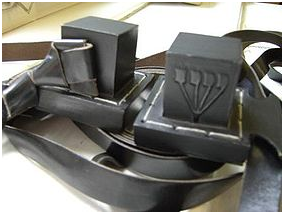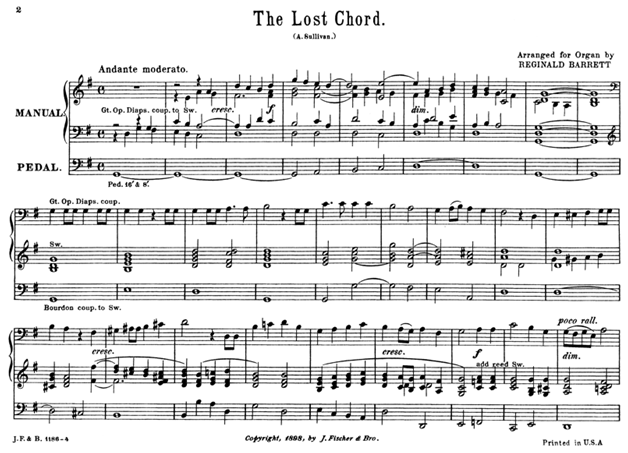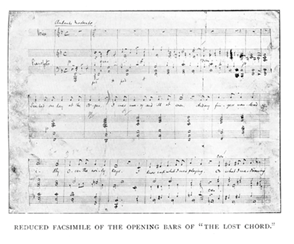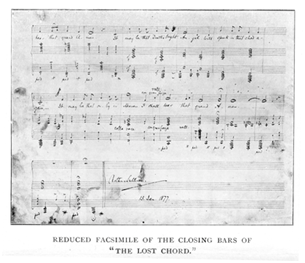AL:III.2 “There is division hither homeward; there is a word not known. Spelling is defunct; all is not aught. Beware! Hold! Raise the spell of Ra-Hoor-Khuit!“
In a lesser known and mostly overlooked riddle in Liber AL vel Legis, we find reference to an antient theme found in the Masonic mysteries as well as in Hebrew Qabalah, the Neophyte Ritual of the ATAT and popular culture; especially that of 19th century spirituality. Crowley writes in his commentary to the above captioned verse:
‘Spelling is defunct’; this seems to be an echo of the statement in [AL:II.5] “The rituals of the old time are black.” (The word ‘defunct’ is decidedly curious; the implication is ‘no longer able to fulfill its function.’) ‘Spelling’ then means ‘making spells.’
We can infer from his comment, referencing AL:II.5, that the word not known is a certain key to spellmaking; suggesting it to be a word of power. But then would this not be the key to the rituals?
AL I.20: “The key of the rituals is in the secret word which I have given unto him.”
Crowley indicates in his commentaries that this would be the “Key of the Magick of the New Aeon of Heru-Ra-Ha.” But then goes on to suggest that the word is Abrahadabra. Yet Nuit says she has already given this to him, and he only later gets it from Ra-Hoor-Khuit (aka Heru-Ra-Ha in a different aspect). Later, Motta comes along and says: “This word is communicated directly to any serious Aspirant when needed”—suggesting the word to have been communicated through the A.’.A.’. line in the ‘Word of the Neophyte.’ And indeed, there are now several words floating through various lines of the ATAT that we might say the actual word has become ‘lost.’
And if not Abrahadabra…what word did Nuit give to Crowley? El would seem to be that word; him having named the book Liber L; until Achad discovered the ‘key of it all.’
AL III.47: “This book shall be translated into all tongues: but always with the original in the writing of the Beast; for in the chance shape of the letters and their position to one another: in these are mysteries that no Beast shall divine. Let him not seek to try: but one cometh after him, whence I say not, who shall discover the Key of it all. Then this line drawn is a key: then this circle squared in its failure is a key also. And Abrahadabra. It shall be his child & that strangely. Let him not seek after this; for thereby alone can he fall from it.“
We might even consider the word “all” as a phonetic pun; really not unlike the pun w/Achad and “one.” More specifically, we should examine the Hebrew word El or Al as the root of Elohim; a Semitic word that means “turning toward,” which even suggests a turning towards the sky in the ancient formula of the Starry Gnosis and the uniting of Heaven and Earth. Indeed, the ancient Semites; some 1300 years before the introduction of Jehova called the god that ruled the skyh Il or El and it was to this god that they turned upwards to see. By the time of the writing of Genesis, the Elohim were postulated as plural beings; there no longer being a singular El and then would be conflated into the monotheistic god of Moses, Jehovah.
So we might say that later, through Achad, Crowley receives the “secret word” from Nuit as ‘AL’—that being setup in advance by way of her prophecy; later echoed by Ra-Hoor-Khuit. Achad seems foreordained by destiny to have been the prophesied child. But also note that Crowley disobeyed the injunction to “not seek after this” and incurring the wrath of Ra-Hoor-Khuit in not heeding the warning that “thereby alone can he fall from it.” And so Achad balked and ceased to continue to be the “one” that “cometh after him”—or in other words, the one that would continue to push Crowley through the Supernals toward Ipsissimus. That Crowley continued to find the higher initiations (Magus and Ipsissimus) after losing Achad to the Abyss, actually betrayed the strict injunction of Our Order that one cannot advance until one has seated another in his or her place.
AL:II.76 “4 6 3 8 A B K 2 4 A L G M O R 3 Y X 24 89 R P S T O V A L. What meaneth this, o prophet? Thou knowest not; nor shalt thou know ever. There cometh one to follow thee: he shall expound it. But remember, o chosen one, to be me; to follow the love of Nu in the star-lit heaven; to look forth upon men, to tell them this glad word.”
Another important riddle; that found in the verse above and in our solution to this riddle showed us a mystical truth regarding the Great Work and its connection to the Thelemic mysteries; embodied by Aiwass as 93=418. But notice again, “one to follow thee.” This doesn’t have a necessary reference to Achad—or we can say that he fell from grace (whether by Crowley’s hand or no) we postulated that this “one” could speak speak to each Thelemic qabalist individually or even in a series of prophets; one with each generation that each generation forges its own relationship with the Divine.
The more celebrated riddle; the order and value of the English alphabet has been attacked by more than several. But in our own solution, we tie an interesting correspondence between ‘not’ and the Key to AL, which is 31 (‘not’ having that value in the EQ and as shown in the three verses below). And so we postulate here that AL is the “secret word,” the ”key of the rituals” and the “Key of it all.” This is as much confirmed by the English Qabalah in Liber 805, as found in Thelemic Qabalah: Volume IV.
AL:I.46 “Nothing is a secret key of this law. Sixty-one the Jews call it; I call it eight, eighty, four hundred & eighteen.”
AL:II.15 “For I am perfect, being Not; and my number is nine by the fools; but with the just I am eight, and one in eight: Which is vital, for I am none indeed. The Empress and the King are not of me; for there is a further secret.”
AL:III.39 “All this and a book to say how thou didst come hither and a reproduction of this ink and paper for ever — for in it is the word secret & not only in the English — and thy comment upon this the Book of the Law shall be printed beautifully in red ink and black upon beautiful paper made by hand; and to each man and woman that thou meetest, were it but to dine or to drink at them, it is the Law to give. Then they shall chance to abide in this bliss or no; it is no odds. Do this quickly!”
Notice that Had, like Nuit is NOT; Had being the unconscious, which itself is tuned into the Universal menstruum that is Nuit. And so NOT is that “Nothing” that “is a secret key of this law” and ties itself in with the AIN (not in Hebrew), which for them has a value of 61 (to our 31). 8+80+418=506; reducing to 11 (“as all those numbers that are of us”):
AL:I.60 “My number is 11, as all their numbers who are of us. The Five Pointed Star, with a Circle in the Middle, & the circle is Red. My colour is black to the blind, but the blue & gold are seen of the seeing. Also I have a secret glory for them that love me.“
506 might even be its own glypy; the 5 representing Man and the 6 representing the Divine with zero between them to signify the NOT that is the interconnecting link and representing the Adam Kadmon. And then in the above verse, we find again the idea of a secret; not so much a word this time as a “secret glory.” Coult this be the mystical power of the ‘word?’ And as in the Adam Kadmon, should we consider the ‘word’ as LOGOS?
The Masonic Lost Word
IN THE BEGINNING WAS THE WORD, AND THE WORD WAS WITH GOD,
AND THE WORD WAS GOD—Gospel of John
That Crowley claimed to have been initiated to the 32nd Degree of Freemasonry in Mexico suggests that the idea of the ‘Lost Word of the Masons’ (a ‘substitute’ word being given in the Master Mason Degree) might have also been in the subtle strata of his consciousness when receiving Liber AL. And that this word might be tied into the Logos, as postulated with the above quote from the Gospel of John. This word was postulated by the Gnostics as the Savior; their name for the archetypal and qabalistic Adam Kadmon. And so at the point of this ‘word’ is the connecting link between God and Man; between Heaven and Earth.
The mythical history of Freemasonry informs us that there once existed a WORD of surpassing value, and claiming a profound generation; that this Word was known to but few; that it was at length lost; and that a temporary substitute for it was adopted. But as the very philosophy of Masonry teaches us that there can be no death without a resurrection,–no decay without a subsequent restoration,–on the same principle it follows that the loss of the Word must suppose its eventual recovery.—Mackey, A “The Symbolism of Freemasonry” Chapter XXXI
Albert Mackey (Masonic historian) states that for the Masons, the lost word is a symbol that stands for “Divine truth”—the symbols being hidden as shown in Liber Trigrammaton. But in Masonic parlance, the word can only be attained in the afterlife, which in Masonry is still a literal ‘Garden of Paradise.’ The Theosophist, Manly P. Hall brings us closer to the Rosicrucian idea on the lost word:
Isis is said to have conjured the invincible God of Eternity, Ra, to tell her his secret and sacred name, which she did. This name is equivalent to the Lost Word of Masonry. According to Christian mysticism, when the Lost Word is found it is discovered in a stable, surrounded by beasts and marked by a star.—Manly P. Hall, The Secret Teachings of All Ages.
If we are as stated above, equivocating the Word with the Savior and Adam Kadmon, we find it also connected to the idea of resurrection in that Isis would use such a word of power to restore Osiris; that she would have learned from Thoth. But this then leads us to the idea of a ‘secret name of God’ as found in Hebrew theology. Indeed, this gets connected with the Tetragrammaton of which it is said that if pronounced correctly would destroy the world. And as part of the half that the Jews have is the entirety of ancient history. And so we learn that written on a clay table in the ancient Euphrates, there is a five-thousand year old song; an ancient hymn of Babylon that goes as follows:
The Word that causes the heavens on high to tremble,
The Word that makes the world below to quake,
The Word that bringeth destruction to the Annunakis,
His Word is beyond the diviner, beyond the seer!
His Word is a tempest without a rival.
The Word of the Lord the heavens cannot endure,
The Word of Enlil the earth cannot endure,
The heavens cannot endure the stretching forth of His hand,
The earth cannot endure the setting forth of His foot!
The Missing Hebrew Letter

Four-pronged Shin embossed on a tefillin box
Tefillin (תפילין) also called phylacteries (from Ancient Greek phylacterion, form of phylássein, φυλάσσειν meaning “to guard, protect”) are a set of small black leather boxes containing scrolls of parchment inscribed with verses from the Torah, which are worn by observant Jews during weekday morning prayers.
Hebrew letters are invested with special meaning; the creative power of letters being taught in the Sefer Yetzirah; a mystical text that tells a story of the creation, based on the letters of the Hebrew alphabet, and a story which diverges greatly from that in the Book of Genesis. The creative power of letters is also explored in the Talmud and Zohar. In the Sefer HaTemunah, the author asserts that one Hebrew letter is missing altogether from the Torah, and will be revealed only when the world moves to the next Sefira; as it is said to evolve upwards from the world shells to Malkuth and then to Yesod, et al.
The text further teaches that “every defect in our present universe is mysteriously connected with this unimaginable consonant,” and that as soon as the missing letter is given to us, our Universe will be filled with undreamed of new words, the words that will turn repression into loving. The letter Shin (ש) becomes of special interest, as it appears on the small leather cube that holds the tefillin with four prongs rather than the standard three. Some scholarssay that this is the missing letter. According to these scholars, the coming revelation of the name and pronunciation of this letter will be what repairs the universe; a cooperative effort between God and humanity; quite the opposite from what the proper pronunciation of Jehovah’s name might do!
The Lost Chord: Moody Blues
In Hinduism, OM or AUM is considered a key-word to paradise. The mysterious “lost chord” of the title is revealed in the orchestration to be the mantra “Om” (in the last stanza of Graeme Edge’s poem “The Word”). If we take the Western version of this word in its five elements as the five separate notes of the Lost Chord, AUMGN, as taught in MITP, we might look for these to come to us as five overtones when vibrated with the technique used in the chanting of Tibetan Monks. And in the more traditional Western concept of Paradise, we have the creative experience in the production of sacred sound that can create a euphoric ecstasy, as found in the poem called ‘A Lost Chord’ by Adelaide Anne Procter and published in 1858 in The English Woman’s Journal. This was later set to music by Arthur Sullivan in 18774ev and became one of the first pieces of music ever to be recorded on the newly invented phonograph of Thomas Alva Edison.
A Lost Chord
Adelaide Anne Procter
Seated one day at the organ,
I was weary and ill at ease,
And my fingers wandered idly
Over the noisy keys.
I know not what I was playing,
Or what I was dreaming then;
But I struck one chord of music,
Like the sound of a great Amen.
It flooded the crimson twilight,
Like the close of an angel’s psalm,
And it lay on my fevered spirit
With a touch of infinite calm.
It quieted pain and sorrow,
Like love overcoming strife;
It seemed the harmonious echo
From our discordant life.
It linked all perplexèd meanings
Into one perfect peace,
And trembled away into silence
As if it were loth to cease.
I have sought, but I seek it vainly,
That one lost chord divine,
Which came from the soul of the organ,
And entered into mine.
It may be that death’s bright angel
Will speak in that chord again,
It may be that only in Heav’n
I shall hear that grand Amen.



Sacred Sound starts with the mantra and holy words and especially vowels—a, e, i, o, u & (sometimes) y in English. The vowels themselves can be said to represent the five senses and of course, that ‘sixth sense’ that is the mystical intuition. From there, bells and knocks in Western Magick, both in lodge work and church services, expands out to large pipe organs and back down to a flute or pan-pipe; that we ultimately get to the concept of ‘music of the spheres’ and ‘celestial harmonics’—so eloquently expressed through the modern synthesizer. All of this in a grand conception of paradise that in itself is a state of mind…and words are products of the mind.
